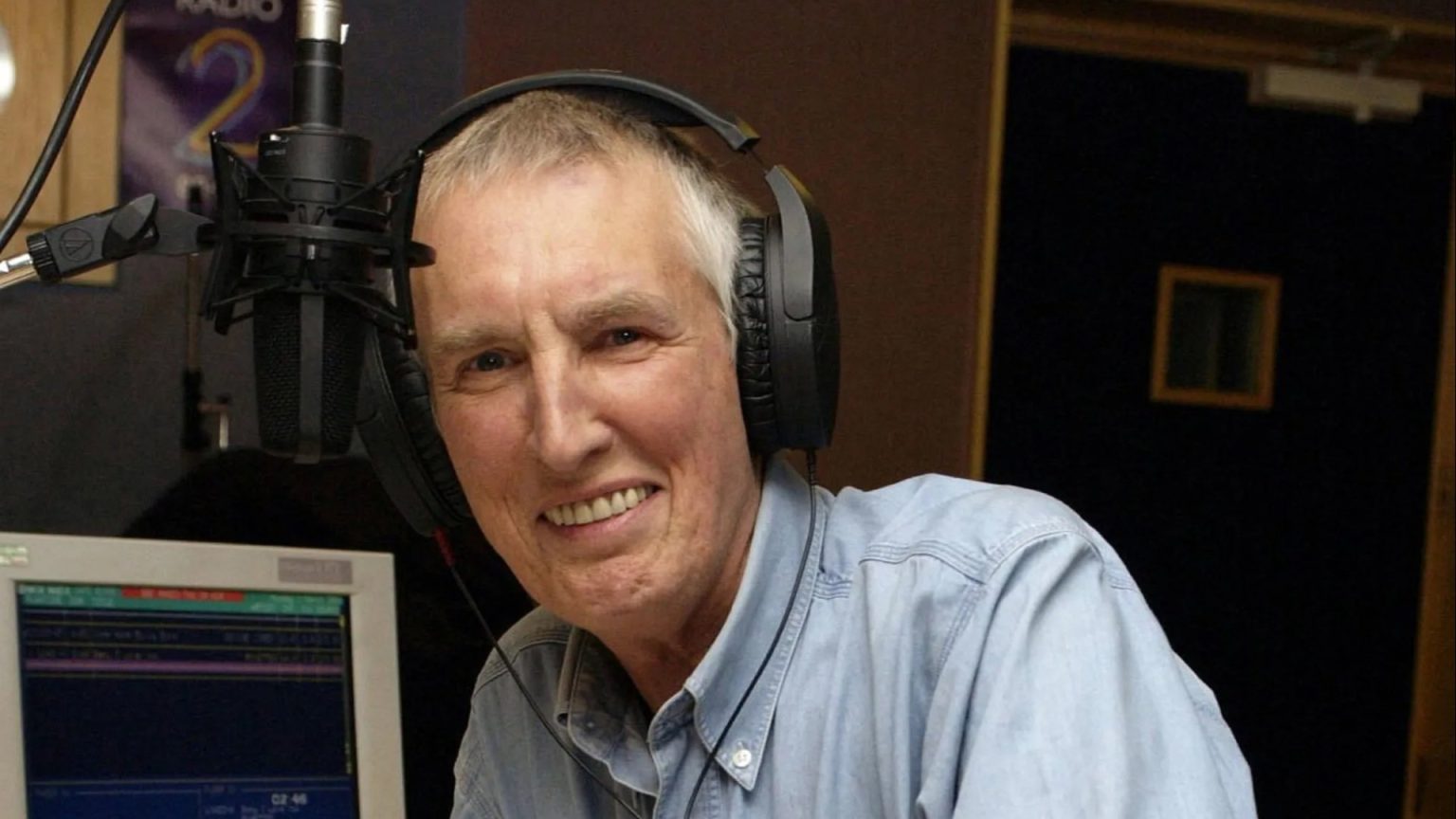Johnnie Walker, the legendary BBC radio presenter, has passed away at the age of 79, leaving behind a legacy that spanned nearly six decades of broadcasting. His final broadcasts, Sounds of the 70s on BBC Radio 2 and The Rock Show, aired at the end of October, marking the end of an illustrious career cut short by ill health. Walker had announced his retirement earlier that month after being diagnosed with idiopathic pulmonary fibrosis (IPF), a debilitating lung disease. His wife, Tiggy, described him as an “extraordinary husband” who faced his illness with remarkable dignity and grace, maintaining his characteristic charm and humor until the very end. She expressed pride in his dedication to broadcasting, continuing almost to his final days, and envisioned him celebrating New Year’s Eve amongst a celestial gathering of musicians.
Walker’s journey to becoming a radio icon began far from the broadcasting booth. Born in Birmingham, he initially pursued a career as a mechanic after leaving school at 15, later transitioning to car sales. However, his passion for music ultimately led him to a Friday night DJ gig under the pseudonym Peter Dee. This initial foray into the world of music laid the groundwork for his eventual radio career, which commenced in 1966 with Swinging Radio England, an offshore pirate station. He further honed his skills at Radio Caroline, gaining widespread recognition with his popular nighttime show. This period cemented his reputation as a rising star in the burgeoning world of radio broadcasting.
The late 1960s marked a pivotal moment in Walker’s career as he joined BBC Radio 1 in 1969, a position he held until 1976. During this time, he became a champion of emerging artists and musical genres, introducing listeners to the sounds of Lou Reed, Fleetwood Mac, and The Eagles, among others. He prioritized the music itself, letting the records speak for themselves, a distinctive style that set him apart from his contemporaries. A brief sojourn in San Francisco followed, where he recorded a weekly show for Radio Luxembourg, showcasing his talent to an international audience. His return to the UK in the 1980s saw him resume his work with the BBC, hosting Radio 1’s Saturday Stereo Sequence, further solidifying his status as a prominent figure in British radio.
Walker’s enduring connection with the BBC continued through various roles, culminating in his departure from Radio 1 in 1995. Three years later, he found a new home at Radio 2, initially with his own weekly show and later taking the helm of the coveted Drivetime slot. This move cemented his legacy as a multi-generational broadcaster, connecting with new audiences while retaining his loyal fanbase. He continued to champion diverse musical genres and artists, demonstrating his enduring passion for music discovery. His warmth and engaging style resonated with listeners, creating a sense of community and shared musical experience.
Tributes from fellow broadcasters and colleagues poured in following the news of Walker’s death. Bob Harris, who took over Walker’s Sounds of the 70s show, shared personal anecdotes of their long-standing friendship, revealing a shared passion for music and mutual support during periods of ill health. Harris recalled Walker’s encouraging words and genuine excitement for his successor, a testament to his generous spirit and unwavering dedication to radio. Helen Thomas, Head of BBC Radio 2, recognized Walker’s significant contributions to the station, highlighting his ability to make his shows appointment listening and his deep love for the music he shared with his audience. She emphasized the impact he had on future generations of presenters, inspiring them with his passion and unique style.
Johnnie Walker’s career was marked by resilience and a deep connection with his audience. He openly shared his health challenges, including surviving non-Hodgkin’s lymphoma in 2003, bravely detailing his near-death experiences on air. This transparency and honesty further endeared him to listeners, fostering a sense of shared vulnerability and humanity. His final battle with IPF, a progressive and ultimately fatal lung disease, brought his broadcasting career to a close, but his legacy as a pioneering DJ and passionate music advocate will continue to resonate. From his early days as a pirate radio DJ to his decades with the BBC, Johnnie Walker remained a beloved figure in the world of radio, leaving behind a void that will be difficult to fill.




